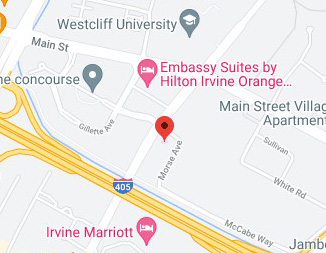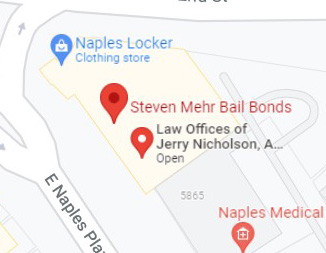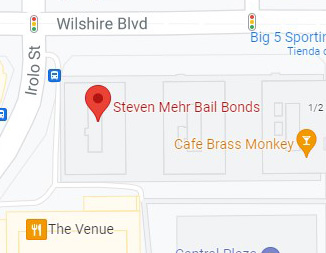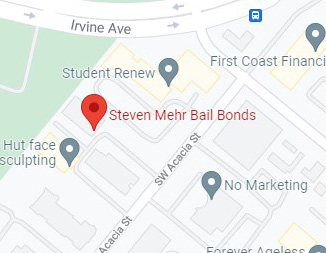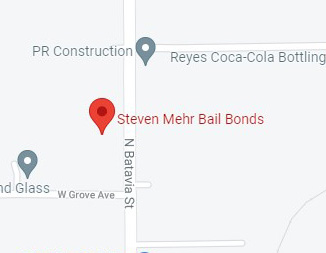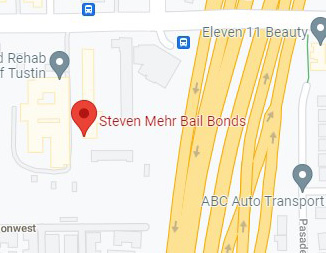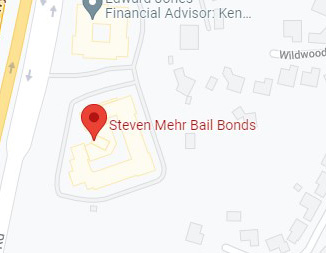Being arrested doesn’t automatically mean you’ll have to prove your innocence while behind bars. In California, an alleged offender can prove their innocence while out of custody, thanks to the bail system. This system allows offenders to continue with a normal life outside jail. While out of jail, you could know how your case is progressing and find ways to fight the charges.
Therefore, if you’ve been placed under arrest in Burbank, CA, and the judge has confirmed you can be released on bail, don’t be stressed. A Burbank Bail Bonds company can help you post your bail amount. At Steven Mehr Bail Bonds, we have you covered regardless of how high the bail amount is. We offer quick, efficient bail bond services that’ll have you walk out of jail within no time. To add to that, we have easy payment plans that will make your bail bond affordable. So call us soon after your arrest, and we’ll start working on securing your freedom right away.
What Is Bail?
Once the police place you under arrest for committing a crime, you become a defendant in the legal process that involves detention and then a day in court for a trial. Bail is the money you deposit or someone else deposits on your behalf to secure your release from detention while you await a date for your trial. It is collateral meant to guarantee that you will appear in court as ordered without failing once released.
Courts don’t impose bail on every crime, although it significantly depends on how severe the criminal offense is and its nature. The bail amount is a specified amount that the judge can lower or raise based on the facts surrounding your case, your criminal history, and your character.
The Arrest and Booking Process
When arrested in Burbank, you will be taken to jail for booking. Booking involves how information about a criminal suspect is entered into a jail or police station system after an arrest. During this process, the arresting officer follows several steps, including:
- Recording your personal information such as name, gender, age, etc.
- Recording any available info concerning the supposed crime
- Taking your picture and fingerprints
- Searching your person and seizing any personal item they find, like money and phone. The police will hold onto your personal effects until you are released from custody unless the item is illegal or proof of the supposed crime.
- Checking whether you have any criminal history
Booking takes anywhere between thirty minutes and two hours based on how busy the jail is and how many people need to be booked. After booking, your case is taken to the prosecution’s office for the DA to determine whether or not to file charges. If charges aren’t filed, it means there’s no case, and you will be set free. And if the DA files charges, the police can then release you on your own recognizance, commonly known as O.R release, or place you in a detention cell. O.R release means you do not have to post bail. You only have to sign a written promise to make all court appearances as required. This kind of release is mainly granted if a defendant’s crime is a minor one.
If charges have been filed, you’ll have to be arraigned in court within 72 hours. At the arraignment, the judge reads the charges against you and asks you to enter a plea. If you’re still in custody at the time of the arraignment, the judge may order an O.R release, set bail, then order you back to the cell until the bail amount is deposited, or deny you bail altogether and order you back to the cell. Once the judge sets bail, you can reach out to your family or a Burbank Bail Bonds company to help you deposit the amount and secure your release.
How Bail Is Set
A judge doesn’t just set bail from nowhere or impose any bail amount they feel. They have a bail schedule that guides them on what amount they should impose for what offense. A bail schedule is a list that sets the bail amount an accused is required to pay based on the nature of the crime. A judge has the discretion to reduce or increase the amount on the bail schedule. Every county in California has its local bail schedule.
What the Judge Considers When Lowering or Increasing Bail Amount
If you’re seeking to lower your amount of bail or the prosecutor seeks to have it raised, there are several factors the judge will consider, including:
- How severe your supposed crime is
- If anybody was hurt, and if that’s the case, how severe the injuries are
- If you made any threats to the supposed victim
- Whether your supposed crime involved drugs or weapons
- Whether you are a danger to the public
- Whether you have a criminal history
- Whether you are employed or have ties to the community, for instance, business or property interests
- The possibility that you will make all court appearances
If you’re facing serious charges such as robbery, the judge may decline to modify the bail amount without first determining that there are unusual circumstances to justify the modification. The circumstances could include:
- Discovery of proof that is exculpatory or incriminating
- Prosecution witnesses won’t cooperate or have disappeared
- You’ve become seriously ill
- The police found you with a significant amount of money and a ticket to a different country or state.
- A change in the facts surrounding your case
The judge also has the discretion to deny you bail altogether. This could happen when a different jurisdiction has a warrant out for your arrest or if you commit additional offenses while free on bail. Also, if you violated probation or parole, you might not be granted bail. The factors mentioned above for lowering or increasing the bail amount may also apply here.
Bail Conditions
If you are granted bail or released on your own recognizance, the judge can impose various conditions. Your lawyer may also suggest other terms and conditions in an attempt to persuade the judge to grant you bail or reduce the bail amount.
The court may impose several routine conditions upon you in exchange for setting you free on your own recognizance or lowering your bail amount. Others could be set based on your case’s nature. These conditions could include:
- No driving when you have any detectable alcohol amount in your blood
- Not contacting the victim whatsoever
- Surrendering your driver’s license and passport
- Not leaving the state
- The requirement to put on Secure Continuous Remote Alcohol Monitor (SCRAM)
- Placing you under house arrest with electronic monitoring
Types of Bail and How They Are Posted
Bail could be in the form of cash, property, or bond you secure from a bail bonds agent.
Cash Bail
Cash bail is the easiest and fastest way to make bail. It involves depositing the whole cash amount with the court. You first need to have the amount the judge set as bail in cash, then deposit it with the court. You could also pay the money using a cashier’s check, certified check, personal check, traveler’s check, or money order.
The money will be returned to you if the court proceedings for your case are over, you have made all court appearances as required, and you haven’t violated any bail conditions.
There are cases whereby a court won’t accept cash bail. This includes if the money’s origin is suspicious, such as fraudulent activity, particularly if a significant amount of money is deposited. For instance, if you’ve been charged with embezzling a considerable amount or drug trafficking and your friend posts a $100,000 cash bail, the judge might become suspicious of where the money came from. In this case, it’s you to prove that the source of the cash is legitimate. If you can’t do it, the judge may not accept the money.
Even though cash bail is the easiest and fastest way to post bail, it is the least common. This is because the money required as bail is often substantial, and most people do not have that kind of money readily available to deposit with the court.
Property Bond
Property bond involves placing valuable property with the court instead of money to secure your release. Properties posted as a property bond include jewelry, a home, a car, or any other valuable asset. However, for a property to be posted as bail, it must have equity of at least 150% of the set bail amount. Also, you cannot use open land or property that’s out of state.
Bailing yourself out using a property bond takes much time— several weeks— since the court must have the property appraised, then the court clerk also has to accept the property as a bond. Because it takes so much time to post a property bond, this method of making bail is not prevalent in Burbank.
Bail Bond
A bail bond is the most common way of making bail. This method involves securing a bond through a certified Burbank Bail Bonds company because the bail amount can be substantial. When posting bail through a bonds company, you may need to have your co-signer handle the process.
The co-signer travels to the bail bonds company to meet with the company’s bail bonds agent. After the agent walks the co-signer through the process and all paperwork is completed, the co-signer will have to pay the agent a non-refundable premium. This is usually 10% of the total bail amount. Therefore, if your bail is set at $100,000, the guarantor pays $10,000. After the 10% premium is paid, the bail bonds agent travels to where you are being held to deposit the entire bail amount with the court and secure your release.
The bail bonds agent may also need you to provide some form of collateral to obtain a bond, especially if the amount of bail is substantial. Collateral is mainly real property because personal property could disappear. Also, personal properties rarely have considerable value except if it’s valuable jewelry, painting, or a collection of not-so-common items.
Failure to Appear In Court After Release on Bail
If you fail to make all court appearances after release on bail, you risk losing your bail money and facing other consequences as well. If you made cash bail, you’d lose the whole amount to the court. This also applies to a bail bond, although in this case, it’s the Burbank Bail Bonds company that will forfeit the entire bond. If you had provided collateral to the bond company, the company might have to sell it to recover the money it had to forfeit to the court. And if there isn’t any collateral, the company may hire a bounty hunter to find you.
A bounty hunter has the power to arrest and return you to the police. They’re paid a part of the bail money, but only if they apprehend you. There’s a deadline to return you to the authorities, or the company will have to pay the whole amount secured by the bond.
However, the court may vacate its forfeiture order and exonerate your bail if you appear within a hundred and eighty days of the order and you have a valid reason. Your reason may include:
- An illness. You must have a medical statement or report as proof
- Injuries
- You are, or you became disabled, thus, couldn’t attend court
- You were arrested and detained in a different jurisdiction
- You are mentally ill
Burbank Jail Information:
Burbank Police Department and Jail
Inmate Information: 818-238-3000
Men’s Central Jail
Phone: 213-473-6100
Twin Towers Correctional Facility
Phone: 231-893-5100
Burbank Court Information
Burbank Courthouse
Phone No. 818-260-8498
Los Angeles County Superior Court
Phone: 213-742-1884
Find Reputable Burbank Bail Bonds Services Near Me
Nobody likes spending even a minute of their time in jail. That’s why most people seek to post bail soon after they’re arrested to secure their release. Being released before going through the court process means making bail. If you’ve been charged in Burbank, CA, Steven Mehr Bail Bonds services will stand by you and ensure you’re released on bail within hours to return to your daily routine. Our Burbank Bail Bonds agents are swift, confidential, and will work with your best interest at heart. Contact us today at 800-834-8522 to commence your release process right away.





